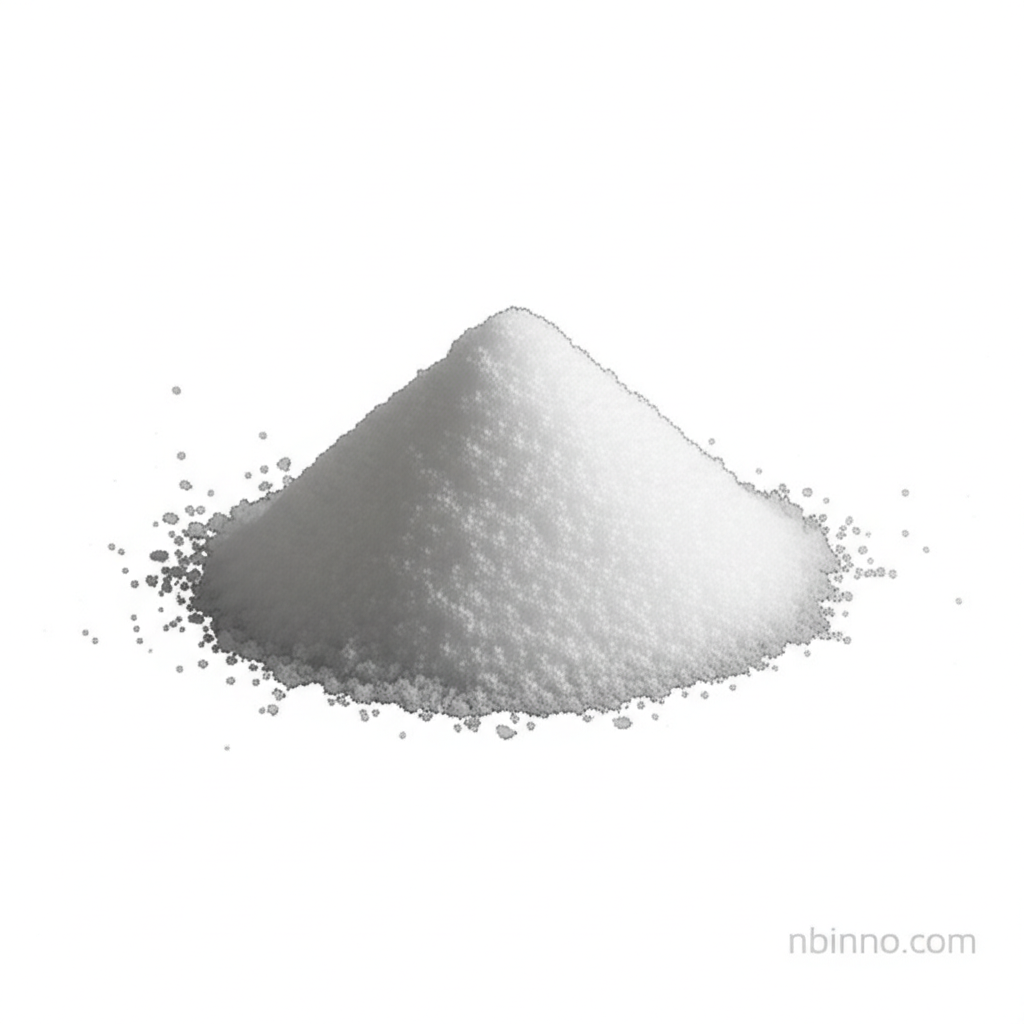Understanding Crotonic Acid: Properties, Applications, and Industrial Significance
Explore the versatile properties and widespread industrial applications of Crotonic Acid (CAS 107-93-7), a key organic chemical.
Get a Quote & SampleProduct Core Value

Crotonic Acid
Crotonic acid (CAS 107-93-7), also known as trans-2-butenoic acid, is a short-chain unsaturated carboxylic acid with the chemical formula C4H6O2. It presents as a white crystalline solid with a pungent odor and is soluble in both water and many organic solvents. Its industrial significance stems from its diverse chemical properties and reactivity, making it a valuable compound in various manufacturing processes. Understanding the chemical synthesis methods for crotonic acid is crucial for its industrial application.
- High Purity Crotonic Acid for Diverse Applications: Sourced for its excellent purity, this compound is essential for various applications including chemical synthesis and polymer production, leveraging its unique chemical properties.
- Key Intermediate in Chemical Synthesis: Crotonic acid serves as a vital building block in the synthesis of a wide range of organic compounds, including pharmaceuticals and agrochemicals, underpinning its role in fine chemical intermediates.
- Enhancing Materials with Crotonic Acid Polymerization: Its ability to polymerize makes it a valuable comonomer, particularly with vinyl acetate, contributing to improved adhesive and coating formulations.
- Ensuring Safety and Compliance with Crotonic Acid Data: Adhering to strict safety protocols is paramount. Understanding the material safety data and handling requirements ensures responsible use in all industrial settings.
Key Advantages of Crotonic Acid
Versatile Chemical Reactivity
The unsaturated nature of crotonic acid allows for a broad spectrum of chemical reactions, including hydrogenation, esterification, and polymerization, making it a versatile component in chemical synthesis. Its reactivity is a key factor for many industrial uses.
Broad Industrial Applications
From paints and adhesives to personal care products and pharmaceuticals, the wide-ranging applications of crotonic acid highlight its importance across multiple sectors. Its use as a comonomer in polymers is particularly noteworthy.
Reliable Sourcing for Chemical Needs
Ensuring a consistent and high-quality supply is critical for manufacturers. Understanding where to buy crotonic acid online and its typical purity levels aids in reliable procurement for industrial processes.
Key Applications
Polymers and Coatings
Crotonic acid is a key comonomer in the production of polymers, especially with vinyl acetate, contributing to the formulation of paints, adhesives, and coatings with enhanced durability and performance.
Pharmaceutical Synthesis
As a crucial pharmaceutical intermediate, crotonic acid plays a role in the synthesis of various medicinal compounds, contributing to the development of new therapeutic agents.
Textile and Personal Care
In the textile industry, it can be used as a sizing agent, while in personal care products, its derivatives can act as film-forming agents or rheology modifiers.
Organic Synthesis Intermediate
Its reactive nature makes it a fundamental building block in organic synthesis, enabling the creation of complex molecules for agrochemicals, specialty chemicals, and research purposes.
